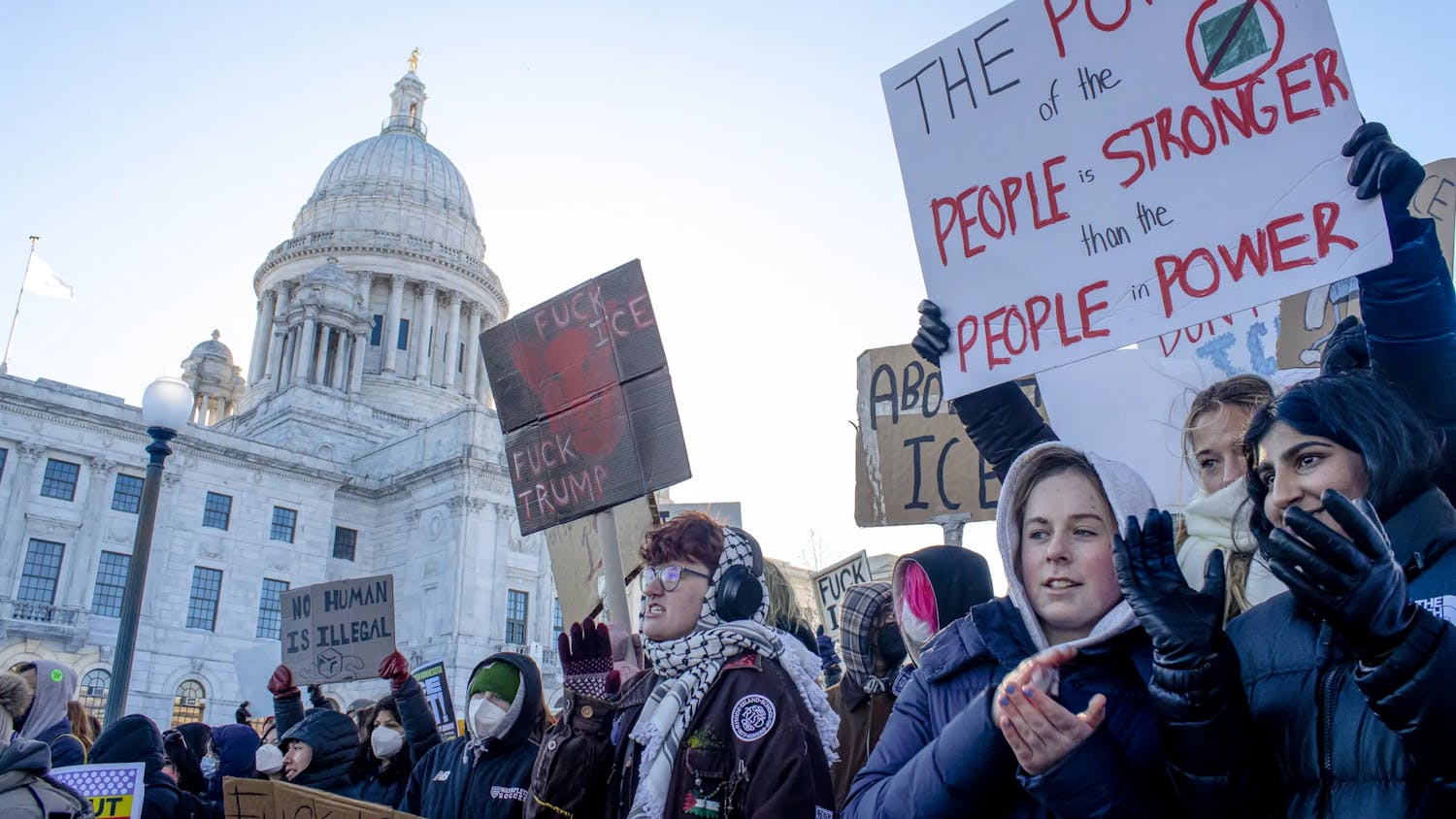After the Providence Public School District moved to remote learning March 23 in response to the COVID-19 pandemic, Jessica Jennings, a parent at Asa Messer Elementary School, received a text message from the school's reading coach:
"I'm delivering materials for your daughter's classroom," the text read. "Are you still at this address?"
Jennings' daughter, Thea, is a fourth grader at Asa Messer. Her English Language Arts class requires specific books and notebooks which are difficult to access online. Recognizing this, the reading coach went door to door to each student’s residence and "delivered ELA material to all 26 children in my daughter's classroom because that's what they needed," Jennings said.
Across the district, school communities and administrators are working to help students continue their classes by providing additional support and technological resources.
The efforts come as the district is already under scrutiny: It is four months into an administrative takeover by the Rhode Island Department of Education.
Newly appointed Superintendent Harrison Peters had been on the job for only two weeks when the pandemic hit. "We're still in session, this is still school," Peters said in a public town hall event April 15 held on Facebook Live. "But we also know that this is a different type of school, and we want to be sensitive to that."
Learning virtually
These days, Thea wakes up earlier than usual. Virtual learning starts an hour before her typical school day used to begin.
Every morning, she logs onto Google Classroom for a daily meeting where she can see her classmates' faces. The teacher then provides a detailed schedule for the rest of the day.
She can text her teacher through an app called GoGuardian to set up an individual Google Hangouts meeting. "Thea recognizes how hard the teacher is working at connecting with every student," Jennings said. "She feels like her teacher is there for her even though she is not there physically. She said those words to me."
The hardest part is not seeing her friends or her teacher in person. Thea told her mother: "I'm learning, but I feel like I'm not learning as much as I would if we were together in the classroom." She misses the opportunity of having her teacher come up to her the way she does in class.
Jennings was able to set up a space for her daughter to work during the school day. At first, she expected that she would need to provide very hands-on support, thinking she "would be opening up a homeschool in my living room," she said. But "it turned out that I'm not doing anything, really. The teacher has been the main point person in my daughter's education … it seems very, very organized, which I'm grateful for."
Confronting the challenges of remote learning
Jennings, who is the co-president of Asa Messer's Parent Teacher Association, is concerned that other families might face added barriers in supporting their children's learning.
For example, she is concerned for students who have to sit through school days at home while their parents are at work in essential sectors like the manufacturing industry — which can be particularly hard for younger children who need more hands-on help.
"I know parents who work third shifts at a factory," she said, adding that the school day runs from 8 a.m. to 11 a.m., and from 1 p.m. to 3:30 p.m.. "Can those families be there physically?"
Asa Messer's PTA has a Facebook page where parents can express their concerns, serving as a platform that some families have used in the past to ask for help.
"We haven't had anyone in the Facebook page reaching out, and hopefully that's a sign that families are getting what they need," she said, attributing this silence to the extra efforts made by the members of the school community to reach out to families.
In addition, limited access to Internet service and technology is another barrier to online learning.
Many of the district's 24,000 students come from low-income families who don’t normally have access to the reliable technological infrastructure needed for remote learning. In response, the district has distributed over 19,000 Chromebooks to its students over the past month, according to Peters.
At Asa Messer, many community members volunteered to deliver Chromebooks to families who needed them. "They are nonstop on this," Jennings said.
The city is also providing free WiFi access in public spaces to help its students participate in online learning. In addition, major cell phone carriers are providing free hotspot services "at least through May 13," according to Pete Janhunen, RIDE director of communications.
A delayed state turnaround plan
Janhunen added that the social distancing measures that prompted the transition to online learning have altered the timeline for the administrative takeover.
"The idea had been that the community design team process would be ending around now," he said in an April 1 interview. Community design teams are made up of members of the PPSD community who provide input for Commissioner Angélica Infante-Green's team at RIDE, as it drafts the turnaround plan. But because of "social distancing realities," these teams weren't able to finalize their in-person meetings.
The teams met independently to gather community feedback through surveys and to analyze that feedback, Janhunen wrote in an email to The Herald. They submitted their final recommendations to Infante-Green in early April.
Before the pandemic, RIDE hoped "the turnaround plan would be finalized sometime in early to mid-April, and we would be releasing it and preparing to implement (it) by the end of April," Janhunen said in the interview, adding that Infante-Green "is wanting this out by the end of the school year for sure."
"We have to plow ahead," Infante-Green said at the online town hall. "We have to make sure that our students continue to learn."
--With additional reporting by Corey Gelb-Bicknell

ADVERTISEMENT




